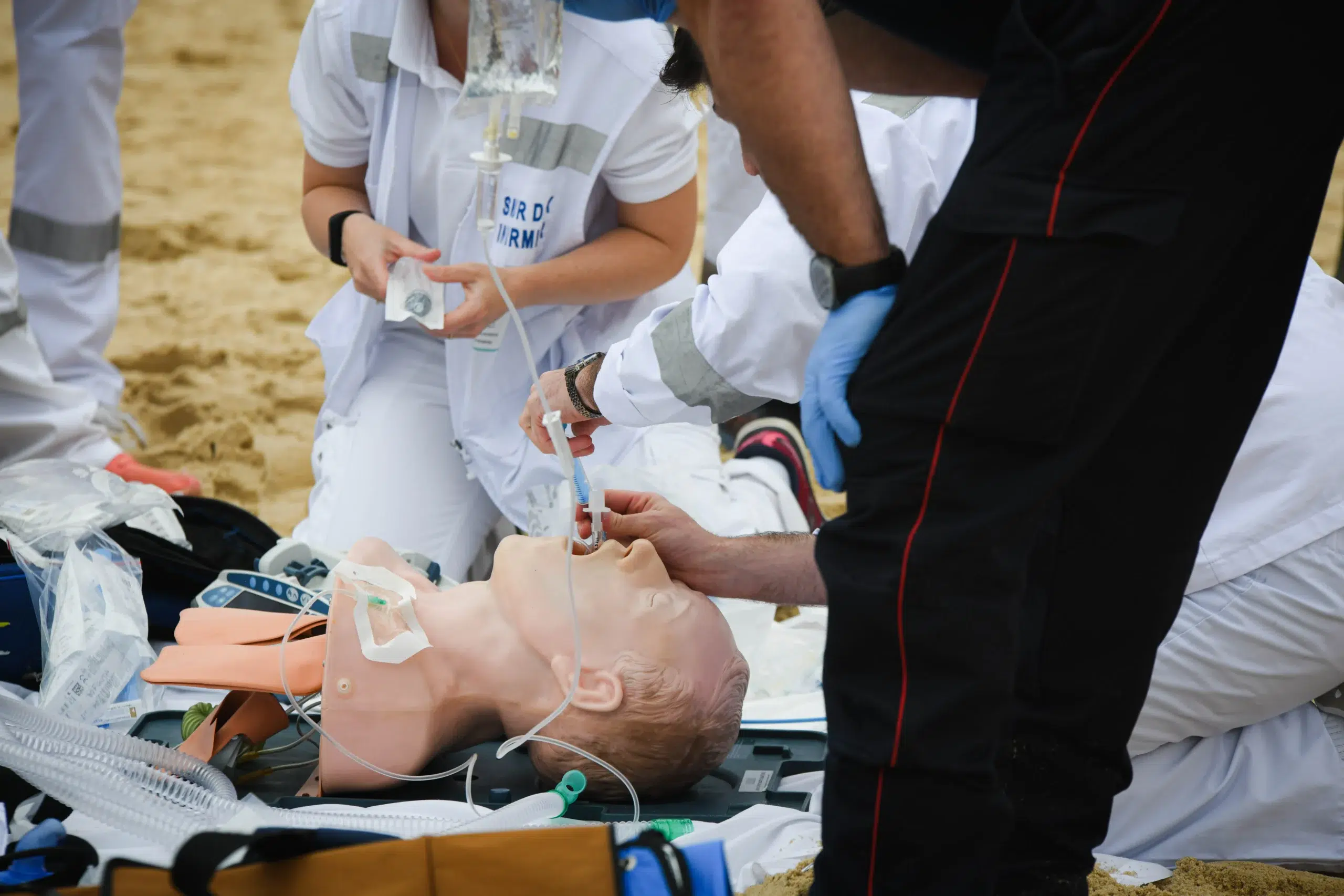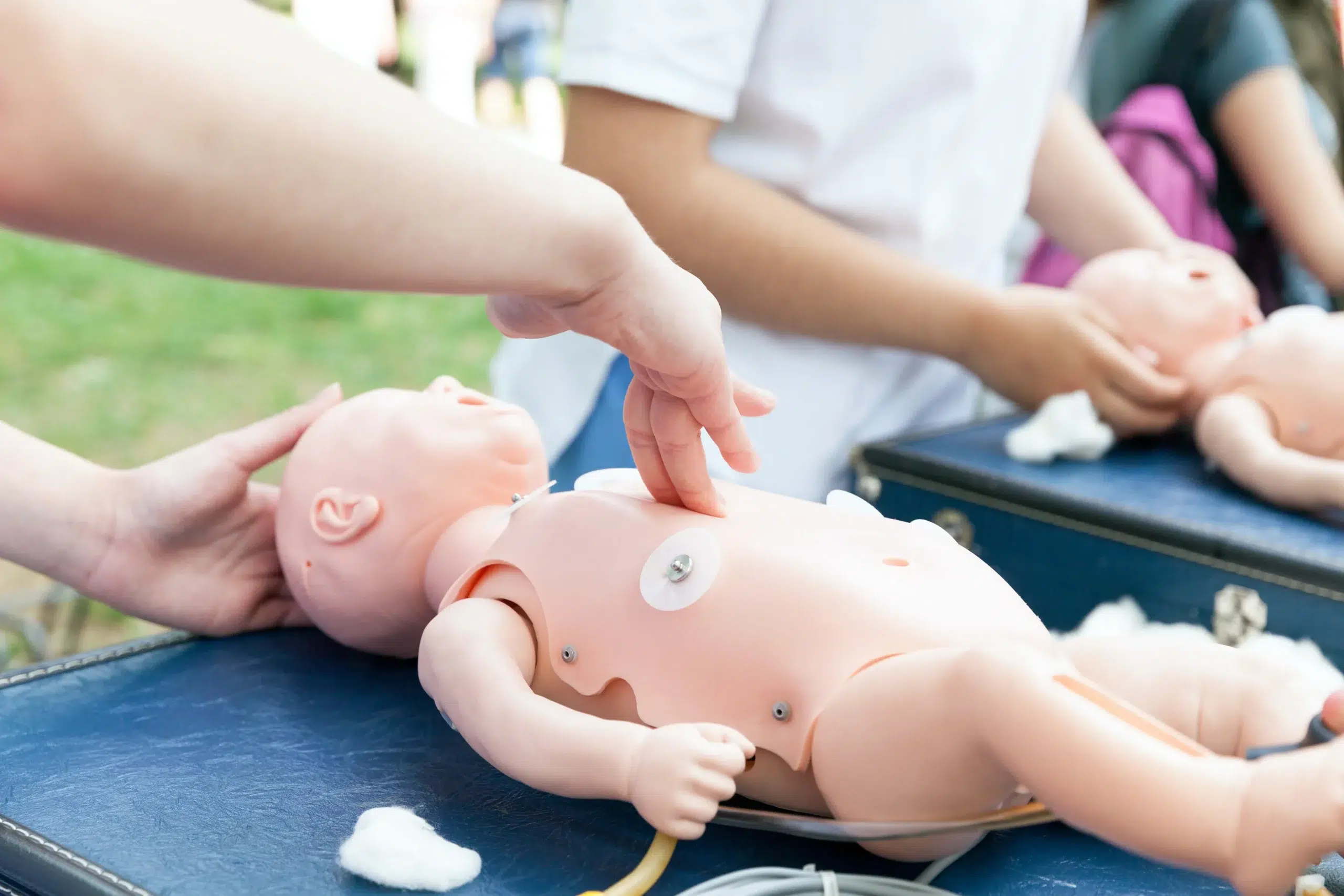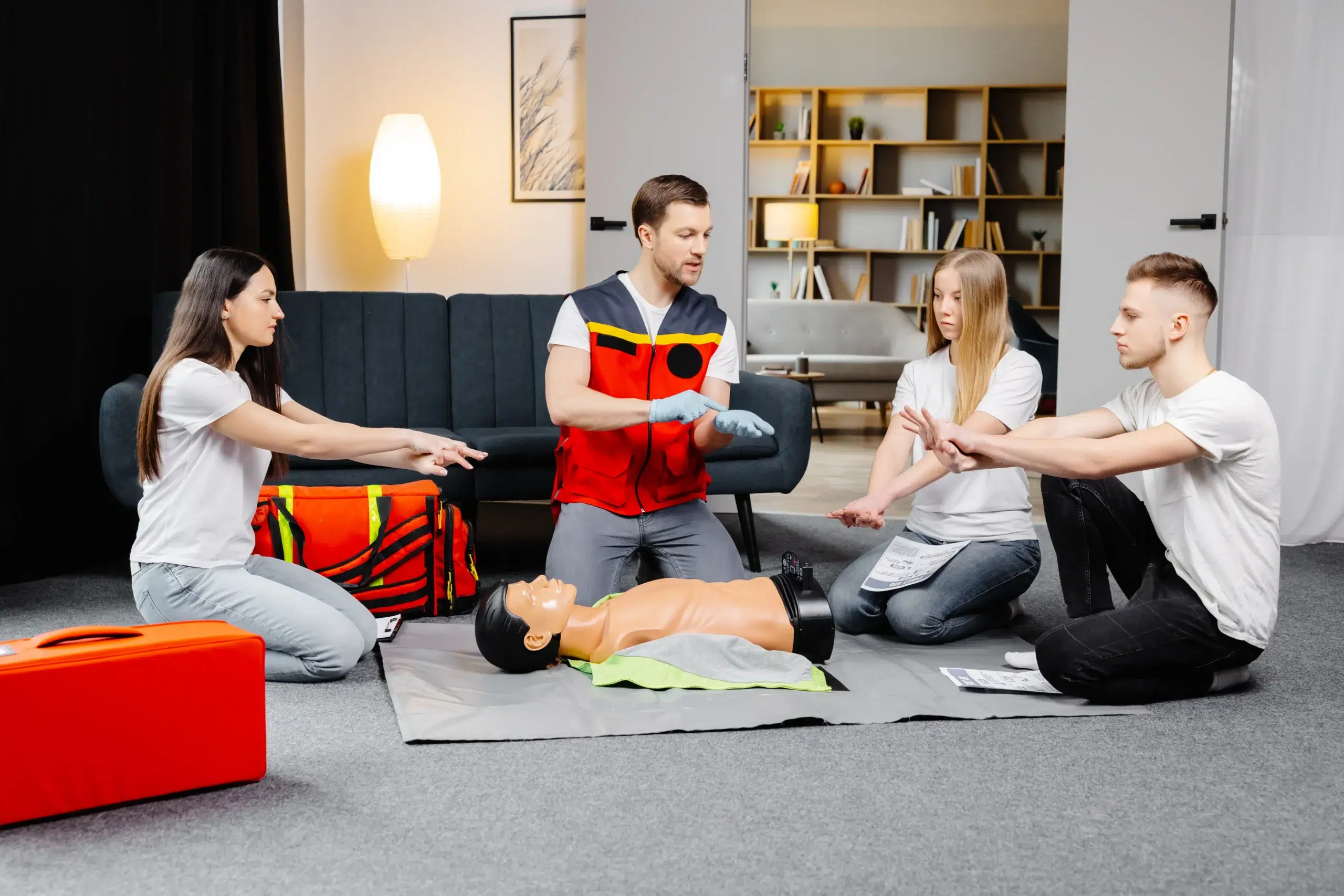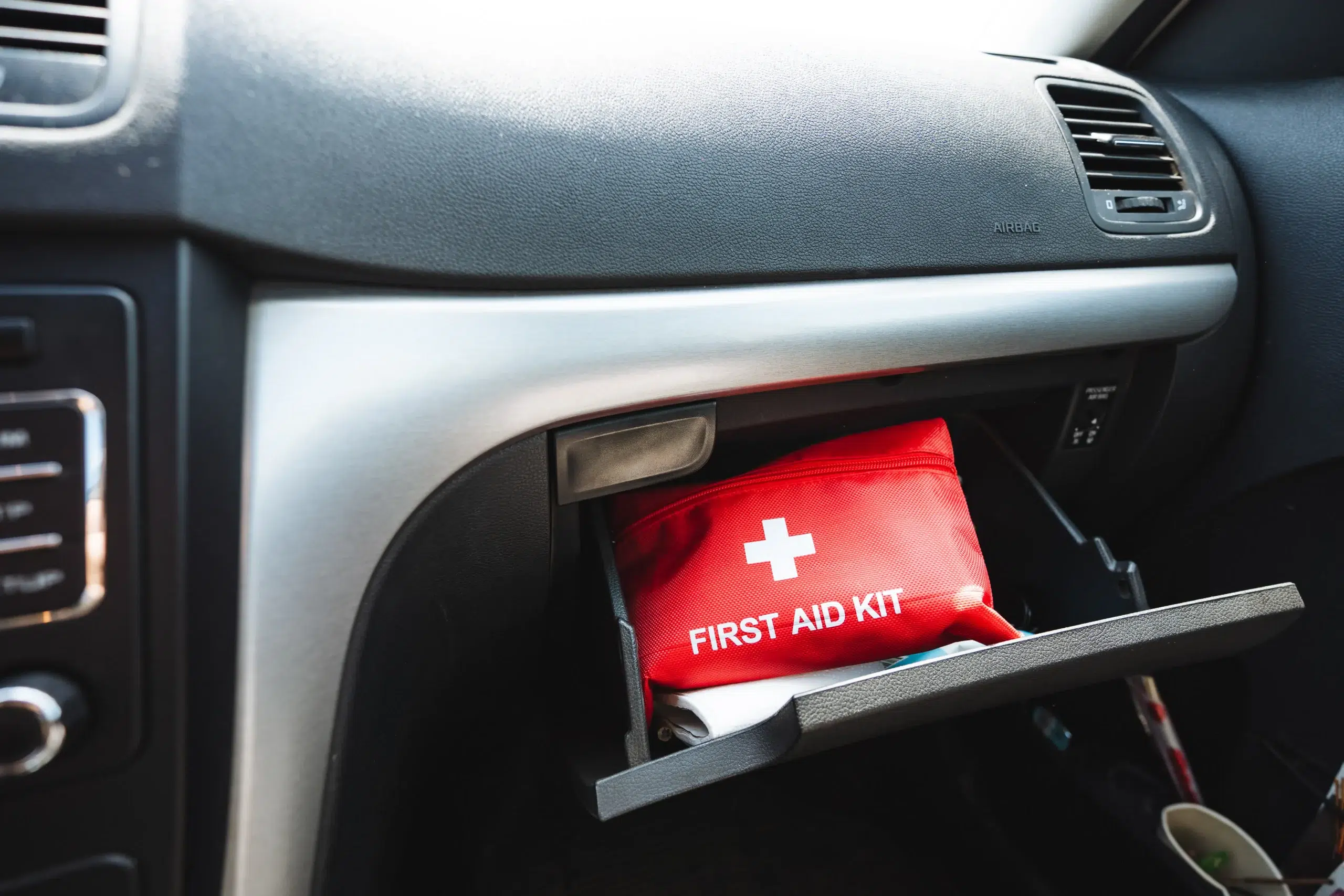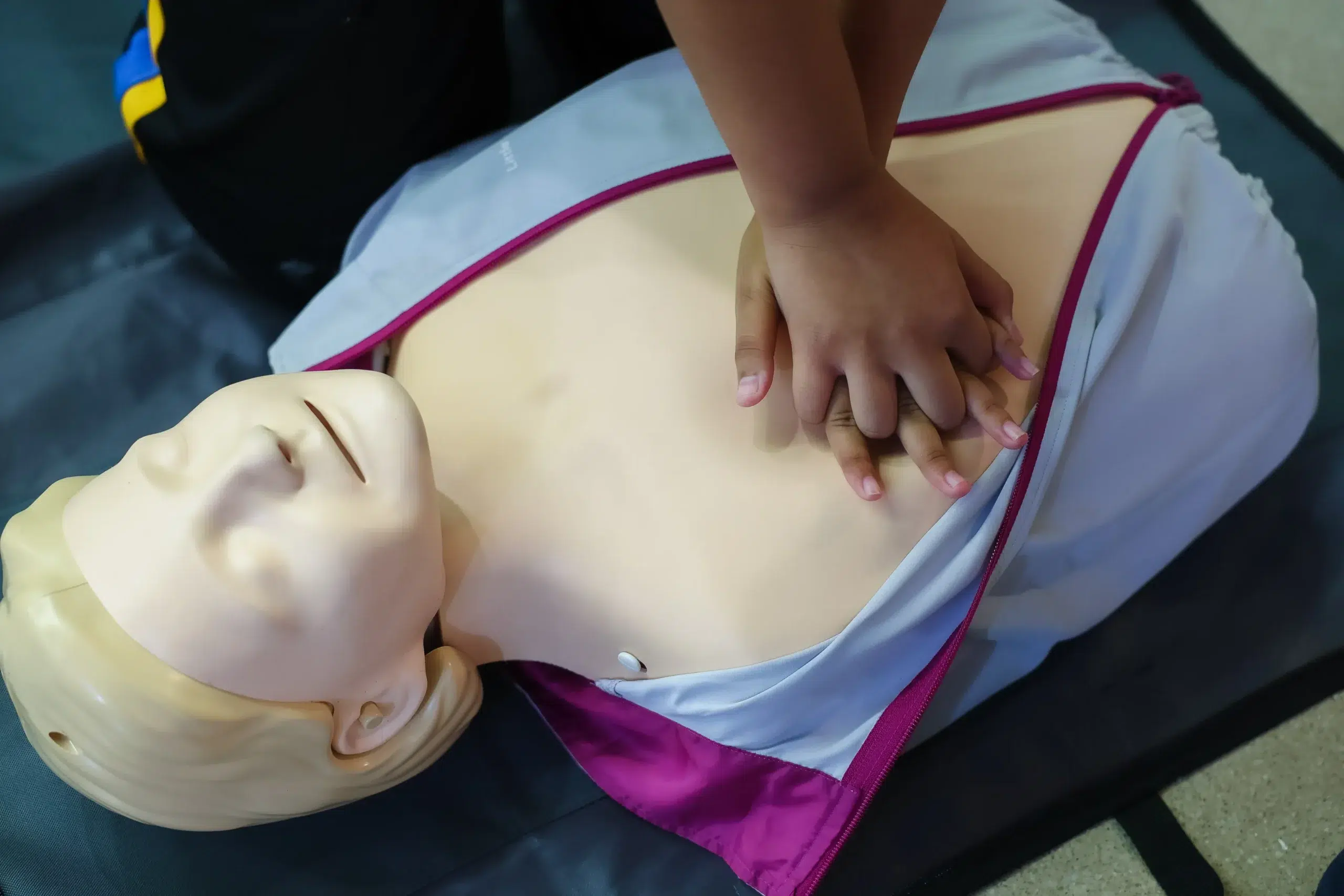Working in healthcare, especially with children, demands a high level of preparedness. Pediatric emergencies can be stressful, and having the right training is crucial for providing effective care. This article focuses on Pediatric Advanced Life Support (PALS) and its importance for healthcare providers in Roseville. We’ll explore what pediatric advanced life support in Roseville entails, how it differs from basic CPR, and why it’s a vital skill for anyone working with young patients. We’ll also cover where to find accredited PALS courses, what to expect during training, and how this certification can positively impact your career and contribute to a safer community.
Key Takeaways
- PALS certification equips you with essential skills: It addresses the unique needs of infants and children during medical emergencies, providing specialized training beyond basic CPR. Look for AHA-accredited programs for the highest quality training.
- Choosing the right PALS course matters: Consider factors like instructor experience, available resources, and program reputation to find the best fit. Roseville CPR Classes offers a blended learning option for added flexibility.
- Maintaining your PALS certification is key: Stay current with the latest guidelines through recertification and continuing education. This ongoing commitment strengthens your skills and contributes to a safer community for children.
What is Pediatric Advanced Life Support (PALS)?
PALS Definition and Purpose
Pediatric Advanced Life Support (PALS) certification equips healthcare providers with the knowledge and skills to respond effectively to life-threatening emergencies in infants and children. The PALS course teaches systematic assessment, recognition, and treatment of pediatric emergencies, from shock and respiratory distress to cardiac events and post-resuscitation care. It’s a specialized program designed to give healthcare professionals the confidence to manage critical situations and improve outcomes for young patients.
Why PALS Matters for Roseville Healthcare Professionals
PALS certification is essential for any healthcare provider working with children in Roseville, Sacramento, and Rocklin. Children have unique physiological differences from adults, requiring specialized care during medical emergencies. PALS training addresses these distinct needs, providing the expertise to handle pediatric-specific emergencies not covered in basic CPR training. This comprehensive program combines online learning with hands-on skills practice, ensuring Roseville’s healthcare professionals are well-prepared for the challenges of pediatric emergencies. This specialized training can be crucial in a variety of settings, from hospitals and clinics to schools and community centers.
Find PALS Certification Courses in Roseville
Finding the right Pediatric Advanced Life Support (PALS) certification course is crucial for healthcare providers entrusted with children’s lives. This section helps you understand what to look for in a quality PALS program and where to find reputable providers in Roseville.
AHA-Accredited Programs
The American Heart Association (AHA) sets a high standard for PALS training, ensuring up-to-date and effective instruction. Look for AHA-accredited PALS courses in Roseville to guarantee you’re receiving training aligned with the latest guidelines. This accreditation signifies a commitment to quality and comprehensive education. Roseville CPR Classes offers AHA-accredited PALS courses designed to meet these rigorous standards.
Course Content and Structure
PALS courses cover essential topics, equipping healthcare professionals with the knowledge and skills to respond effectively to pediatric emergencies. The curriculum typically includes recognizing and treating respiratory distress, shock, cardiac arrest, and post-resuscitation care. You’ll learn how to assess a child’s condition quickly, make critical decisions under pressure, and provide appropriate interventions. For more information on PALS Certification, visit the American Red Cross website.
Online vs. In-Person PALS Courses
PALS courses often blend online learning with in-person skills sessions. This hybrid approach allows you to study the core material at your own pace through interactive modules and then practice essential skills with certified instructors. Roseville CPR Classes offers this convenient blended format, combining online learning and hands-on skills testing at their Roseville location.
Key PALS Providers in Roseville
Several reputable organizations offer PALS certification courses in Roseville. Here are a few options:
Roseville CPR Classes
Roseville CPR Classes, affiliated with Safety Training Seminars, an AHA Training Center, provides high-quality AHA PALS courses. Their focus on personalized instruction and small class sizes creates a supportive learning environment.
NorCal CPR Training
NorCal CPR Training offers AHA-authorized PALS training in the greater Sacramento area. They offer various course schedules to accommodate busy professionals.
Cascade Healthcare Services
Cascade Training Center provides comprehensive AHA resuscitation training, including PALS, in the Roseville region. They cater to various healthcare professionals, offering flexible training options.
SureFire CPR
SureFire CPR offers AHA PALS certification courses designed specifically for healthcare providers. They emphasize practical skills development and real-world application.
What Happens in a PALS Course?
This section covers what you can expect during your PALS training, from the classroom structure to the skills you’ll learn. Understanding these elements will help you feel prepared and confident going into your course.
Course Duration and Format
PALS courses are designed to be comprehensive, yet manageable. The initial PALS certification typically requires around 10 hours, while renewal courses are shorter, around six hours. If you opt for a blended learning experience, like the PALS Hybrid course, you’ll spend about two to four hours on online coursework, followed by a brief 15–30 minute in-person skills check. This page provides a helpful breakdown of the different PALS course formats.
Key PALS Topics
PALS courses focus on recognizing and responding to life-threatening emergencies in infants and children. You’ll learn how to assess and manage a variety of critical situations, from shock and respiratory distress to cardiac events and post-resuscitation care. The American Red Cross offers more detail on the specific conditions covered in PALS training.
Hands-On Skills Practice
PALS isn’t just about theory; it’s about putting your knowledge into action. Expect hands-on training sessions and simulated clinical scenarios to reinforce your learning. These practical exercises will help you develop the muscle memory and critical thinking skills necessary to respond effectively in real-world emergencies. This resource offers further information on the practical aspects of PALS training.
Prerequisites and Requirements
Before you can enroll in a PALS course, you’ll need a current pediatric Basic Life Support (BLS) certification. This prerequisite ensures you have a foundational understanding of CPR and other essential life-saving techniques. The American Red Cross emphasizes this requirement on their PALS information page. Make sure your BLS certification is up-to-date before registering for your PALS course.
PALS Certification Costs & Financing
Getting your PALS certification is an investment in your career and the community. Understanding the costs and exploring available financing options can help you plan for your training.
Average Roseville Course Prices
PALS course fees in Roseville, CA, vary based on the training center and what’s included. Providers like Cascade Training Solutions offer a range of AHA courses, including PALS, at competitive rates. Check directly with the training center for the most up-to-date pricing. Roseville CPR Classes also offers a low-price guarantee, so compare to find the best fit for your budget.
Discounts and Promotions
Look for potential savings! Many training centers, including Safety Training Seminars, offer discounts and promotions on PALS courses. Ask about group discounts if you’re training with colleagues, or inquire about any current promotions when you register. See if your employer partners with any training centers for discounted rates.
Payment Plans & Employer Reimbursement
Financing your PALS certification can be manageable. Some training centers offer payment plans to spread out the cost. Many healthcare employers offer reimbursement for professional development courses like PALS. Check with your HR department about their policies, which can significantly offset training costs. If your employer offers reimbursement, confirm which training centers they prefer and any pre-approval process.
Choose the Right PALS Training in Roseville
Picking the right PALS training course is a big decision. It’s not just about getting certified—it’s about gaining the confidence and skills to provide the best possible care. Here’s what to consider:
Instructor Qualifications
Look for courses taught by experienced, certified instructors with a strong background in pediatric emergency care. Roseville CPR Classes, affiliated with an AHA Training Center, prioritizes experienced instructors who are passionate about teaching. This ensures you receive high-quality instruction and learn from the best.
Facility and Equipment
The learning environment matters. Modern facilities and equipment create a more effective learning experience. Hands-on practice with simulation tools and realistic scenarios can significantly improve your skills. Cascade Training Center in Roseville is known for providing these resources, enhancing the learning experience.
Student Success Rates
A program’s student success rate speaks volumes about its effectiveness. While not always readily available, reading reviews and testimonials can give you a sense of this. Look for programs that emphasize student preparation and offer resources like pre-course assessments, which can contribute to higher success rates. Cascade Training Center’s pre-course self-assessment helps students gauge their readiness for the PALS Provider Course.
Provider Reputation and Reviews
Before committing to a course, do your research. Check online reviews and see what other students say about their experience. Positive feedback can be a strong indicator of a reputable provider. Yelp reviews for training centers like Cascade Training Center and NorCal Emergency Medical Training offer valuable insights from past students, helping you find a provider that meets your needs.
Prepare for Your PALS Course
Getting ready for your PALS course involves more than just registering. A little prep work makes a difference in maximizing your training. Here’s how to prepare:
Self-Assessment Before the Course
Before starting your PALS provider course, it’s helpful to gauge your current knowledge. A pre-course self-assessment, like the one offered by Cascade Training Center, can identify areas for review. This allows you to focus your study time and feel more confident going into the course. Think of it as a personalized learning roadmap.
Review Essential Skills
PALS courses cover many critical skills, especially airway management for pediatric patients. Reviewing these protocols beforehand is key. Regular review and practice, as highlighted in articles like Common Mistakes in PALS, will improve your course performance and strengthen your ability to provide effective care in real-life emergencies.
Tips for PALS Training Success
One of the biggest hurdles for healthcare providers is finding time for PALS training. Balancing a demanding work schedule with course requirements can be challenging. This article discusses common challenges and offers practical advice. Planning, communicating with your employer, and setting aside dedicated study time are crucial. Remember, investing in your PALS certification is an investment in your career and the well-being of your young patients.
Maintain Your PALS Certification
Once you’ve earned your PALS certification, staying current is key. Knowing how to maintain your PALS skills ensures you’re always prepared to provide the best possible care.
Renewal Requirements
PALS certification is valid for two years. To maintain your credentials, you’ll need to recertify before your current certification expires. This involves completing a renewal course that covers the latest guidelines and protocols in pediatric advanced life support. Keeping your certification up-to-date demonstrates your commitment to providing high-quality care and staying at the forefront of pediatric emergency medicine.
Continuing Education
Beyond recertification, ongoing learning is essential for any healthcare professional. Look for continuing education opportunities that align with your interests and career goals. Many organizations offer a range of courses, including BLS, ACLS, PALS, and NRP. These courses provide valuable continuing education hours, often recognized by licensing boards like the Board of Registered Nursing. Staying informed about the latest advancements in pediatric care allows you to refine your skills and expand your knowledge base.
Stay Updated on Guidelines
Medical knowledge and best practices are constantly evolving. Make it a habit to stay informed about the latest guidelines and protocols in pediatric emergency care. Resources like the American Heart Association and the American Red Cross regularly publish updated information on PALS protocols. Regularly reviewing these guidelines will help you confidently handle any pediatric emergency and provide the most effective, up-to-date care.
PALS Certification & Career Advancement
PALS Job Opportunities
Earning your Pediatric Advanced Life Support (PALS) certification is a significant step in your healthcare career. It shows a specialized knowledge base and skill set focused on providing high-quality care to infants and children. Many healthcare employers, especially those in Roseville, Sacramento, and Rocklin, actively seek PALS-certified professionals. Positions requiring PALS certification often include roles like registered nurses in pediatric intensive care units, emergency room physicians, respiratory therapists, and paramedics. Holding a PALS certification makes your resume stand out, showcasing your dedication to pediatric patient care.
Salary Implications
While salary varies based on experience, location, and specific job title, PALS certification can positively influence your earning potential. Employers recognize the value of specialized training, and this often translates to more competitive compensation. For example, a registered nurse with PALS certification might earn more than a nurse without this specialized training, particularly in roles with a high level of pediatric patient interaction. Resources like the Health Force Training Center offer more information on the continuing education benefits of PALS recertification, further highlighting its professional value.
Networking and Professional Growth
Beyond the immediate job opportunities and salary implications, PALS certification also contributes to your overall professional growth. PALS courses provide excellent networking opportunities. Connecting with fellow healthcare professionals during training can create valuable relationships, mentorship opportunities, and a broader understanding of the field. This network can be a source of support, information, and potential career advancement throughout your professional journey. Staying active in the PALS community also demonstrates a commitment to ongoing learning and development, which is highly valued in the healthcare industry.
PALS Training’s Community Impact
PALS training isn’t just about individual certifications; it’s about building a stronger, safer community for our children. When more people are equipped to handle pediatric emergencies, everyone benefits.
Improve Pediatric Emergency Response
PALS certification gives people the skills to recognize and respond to life-threatening emergencies involving children and infants. This specialized training empowers healthcare providers, first responders, and even community members to act quickly and effectively when seconds count. Knowing how to assess a child’s condition, provide appropriate interventions, and work as a team can dramatically improve outcomes. This preparedness creates a network of skilled individuals ready to assist in times of crisis, strengthening our community’s overall emergency response. For more insights, explore these resources on common misconceptions about PALS certification.
Collaborate with Local Healthcare
PALS training often brings together healthcare professionals from various disciplines and organizations. This collaborative environment fosters communication and teamwork, essential for effective emergency response. By training together, local healthcare providers can establish shared protocols, improve coordination, and build stronger professional relationships. This collaboration extends beyond the classroom, creating a more cohesive and efficient healthcare system within the community. Cascade Training Solutions is a great example of how collaborative training can enhance emergency response.
Build a Safer Community
Ultimately, PALS training contributes to a safer community for children. Children have unique physiological and developmental needs, so their emergencies require specialized care. PALS addresses these distinct requirements, ensuring that more individuals are prepared to handle pediatric-specific situations. This widespread knowledge creates a safety net for children, whether they’re at school, at home, or out in the community. Roseville CPR Classes offers comprehensive PALS training that covers online learning and hands-on skills practice, empowering individuals to confidently respond to pediatric emergencies and contribute to a safer environment.
Related Articles
- AHA PALS Classes in Roseville, CA – Roseville CPR Classes
- BLS Classes in Sacramento: Your Complete Guide – Roseville CPR Classes
- BLS Certification in Roseville: The Ultimate Guide – Roseville CPR Classes
- CPR, BLS, ACLS, PALS, & First-aid Courses in Roseville, CA
- CPR Training in Roseville: Your Complete Guide – Roseville CPR Classes
Frequently Asked Questions
Why is PALS different from basic CPR?
PALS builds upon the foundational skills learned in basic CPR, adding a deeper understanding of the specific physiological differences between children and adults. It delves into specialized techniques for assessing and managing pediatric emergencies, such as respiratory distress, shock, and cardiac events, which aren’t covered in standard CPR training. Think of basic CPR as the first step, and PALS as the advanced, specialized training needed to provide the best care for young patients.
What if my BLS certification expires before my PALS course?
Your BLS certification must be current before you begin a PALS course. If your BLS certification is about to expire, it’s best to renew it before enrolling in PALS. Most training centers offer BLS renewal courses, making it easy to stay up-to-date on both certifications. This ensures you have the foundational knowledge needed to succeed in your PALS training.
How can I fit PALS training into my busy schedule?
Many PALS providers understand the demands of a healthcare career and offer flexible training options. Blended learning formats, combining online coursework with shorter in-person skills sessions, can make it easier to fit training into your schedule. Talk to your employer about adjusting your work schedule or using paid time off for professional development. Some employers even offer on-site training to minimize disruption.
What does a PALS renewal course entail?
PALS renewal courses are designed to refresh your knowledge and skills, ensuring you stay current with the latest guidelines. They are typically shorter than the initial certification course and focus on key concepts and updates in pediatric advanced life support. You’ll review essential skills, practice scenarios, and update your understanding of best practices in pediatric emergency care.
Besides healthcare providers, who else can benefit from PALS certification?
While PALS is primarily geared towards healthcare professionals, anyone regularly interacting with children can benefit from this training. This includes teachers, coaches, childcare providers, camp counselors, and even parents. Having individuals trained in PALS within a community creates a safer environment for children, providing a faster and more effective response in the event of an emergency.


